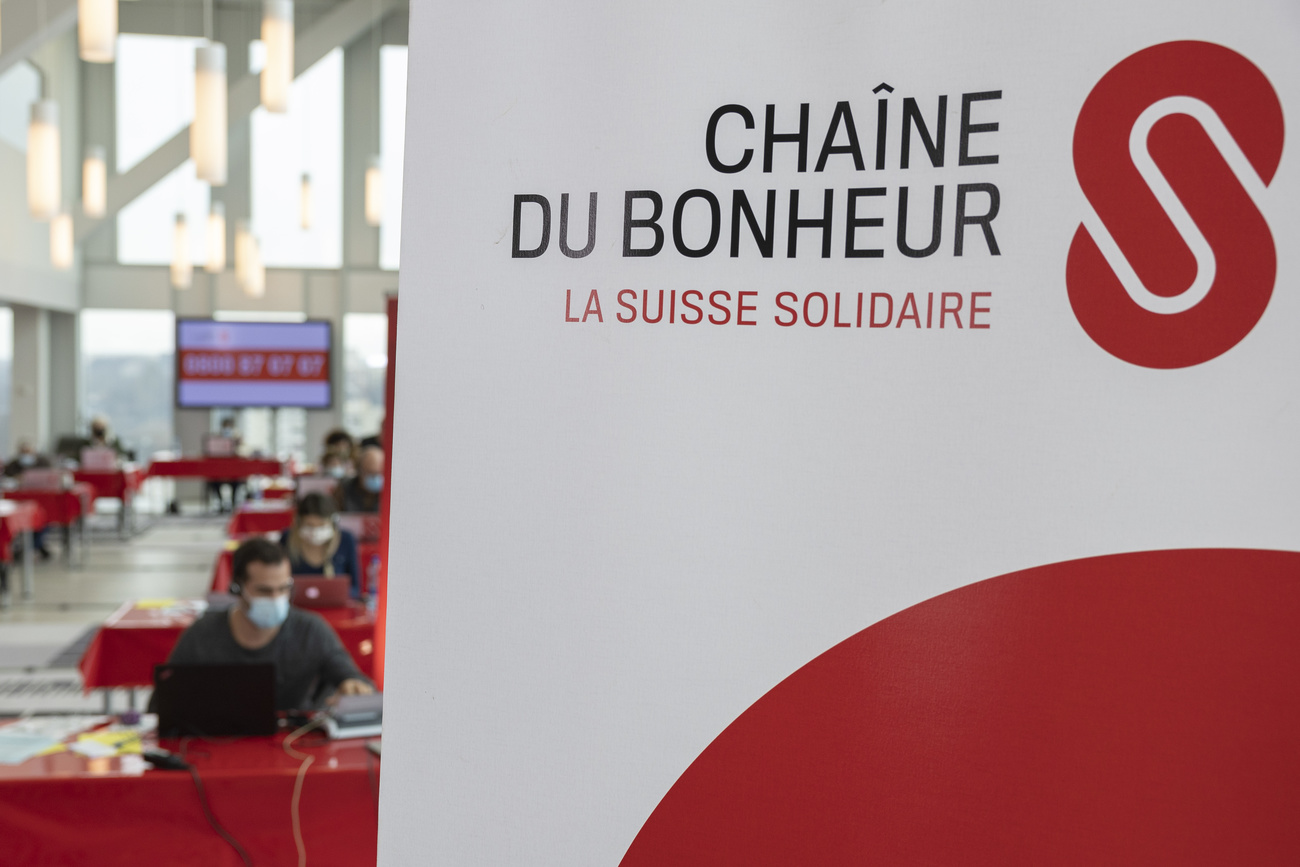
More solidarity among the Swiss, according to a survey

Solidarity in Switzerland has increased significantly since the Covid-19 pandemic. These are the findings of Swiss Solidarity's latest solidarity barometer.
The results of the survey published on Monday show that the Swiss population shows marked solidarity across all generations. Women show slightly more solidarity than men.
In German- and French-speaking Switzerland, solidarity is primarily synonymous with helping family members and neighbours. In Italian-speaking Ticino, solidarity mainly means helping people in need.
For the Swiss population, a sense of duty and the desire for social cohesion are the main reasons for taking action in solidarity. In Italian-speaking Switzerland, individual motivation is even more pronounced than elsewhere.
Discretion required
The people of German, French and Italian-speaking Switzerland believe that solidarity should not be flaunted in broad daylight. It calls for modesty and discretion.
According to Swiss Solidarity, solidarity has increased since the end of the Covid-19 pandemic. However, people’s perception of relationships with their fellow human beings remains predominantly negative.
According to Swiss Solidarity, there was a wave of solidarity shortly after the outbreak of war in Ukraine. However, this has considerably weakened over time.
Differences were also noted between 2021, the year of the first solidarity barometer, and 2023. This year, a third of those questioned said they made a donation “rather spontaneously”. Two years ago, the figure was 42%.
This year too, just over a quarter of those questioned said they made donations “fairly regularly”, compared with a fifth two years ago.
The Solidarity Barometer is based on a survey commissioned by the Swiss Broadcasting Service. Between August 20 and September 12, more than 3,000 people from different language regions were questioned. The responses were compiled and interpreted by the Sotomo research institute and the Centre for Philanthropic Studies at the University of Basel.
This news story has been written and carefully fact-checked by an external editorial team. At SWI swissinfo.ch we select the most relevant news for an international audience and use automatic translation tools such as DeepL to translate it into English. Providing you with automatically translated news gives us the time to write more in-depth articles. You can find them here.
If you want to know more about how we work, have a look here, and if you have feedback on this news story please write to english@swissinfo.ch.

In compliance with the JTI standards
More: SWI swissinfo.ch certified by the Journalism Trust Initiative
















![The four-metre-long painting "Sonntag der Bergbauern" [Sunday of the Mountain Farmers, 1923-24/26] had to be removed by a crane from the German Chancellery in Berlin for the exhibition in Bern.](https://www.swissinfo.ch/content/wp-content/uploads/sites/13/2025/12/01_Pressebild_KirchnerxKirchner.jpg?ver=a45b19f3)










You can find an overview of ongoing debates with our journalists here . Please join us!
If you want to start a conversation about a topic raised in this article or want to report factual errors, email us at english@swissinfo.ch.